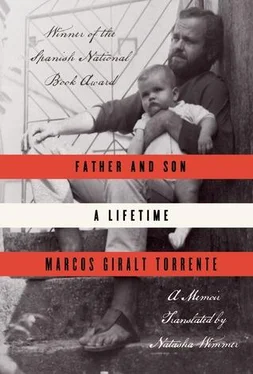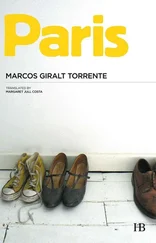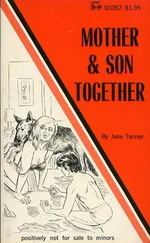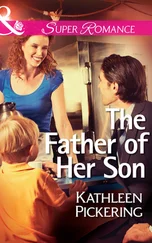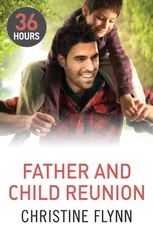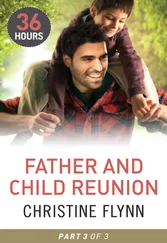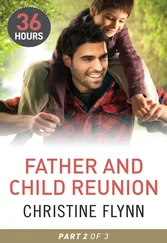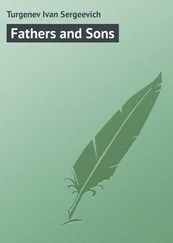Marcos Giralt Torrente
Father and Son: A Lifetime
We have art so that we may not perish by the truth.
— Nietzsche
The same year my father got sick I published a novel in which I killed him.
I’ve spent whole days, years, studying my father, and resentment has often worked its way into my writing. I’ve had my revenge. And yet, as Amos Oz writes in his memoir, “he who seeks the heart of the tale in the space between the work and its author is mistaken: the place to look is not the terrain between text and writer, but between text and reader…” Much of what I’ve written was prompted by my father, but I’ve never written about him. Those were other fathers, other people’s fathers.
Now I’m writing about him.
I set down these lines in a notebook in the fall of 2007, when, after months of doubt and of failing repeatedly to come up with any other ideas, I finally accepted that all I could write about was my father. I thought it was a good start, but that was as far as it went; I couldn’t continue. The same thing happened with all the other attempts I made in the following days to get past my block.
My plan was to write about the preceding two years, and I simply didn’t know how to go about it. I’d done some reading for inspiration, but apparently that only confused me more:
Alone dwells every man and everyone mocks everyone else, and a deserted island is our pain.
( Book of My Mother , Albert Cohen)
One day there is life. A man, for example, in the best of health, not even old, with no history of illness. Everything is as it was, as it will always be. He goes from one day to the next, minding his own business, dreaming only of the life that lies before him. And then, suddenly, it happens there is death.
( The Invention of Solitude , Paul Auster)
My mother’s name was Edna Akin, and she was born in 1910, in the far northwest corner of the state of Arkansas — Benton County — in a place whose actual location I am not sure of and never have been.
( My Mother, in Memory , Richard Ford)
I was born in 1896 and my parents were married in 1919.
( My Father and Myself , J. R. Ackerley)
My father had lost most of the sight in his right eye by the time he’d reached eighty-six, but otherwise he seemed in phenomenal health for a man his age when he came down with what the Florida doctor diagnosed, incorrectly, as Bell’s palsy, a viral infection that causes paralysis, usually temporary, to one side of the face.
( Patrimony , Philip Roth)
On the floor in a corner of my study, sticking out from under a pile of other papers, is a shabby old green folder containing a manuscript I believe will tell me a lot about my father and my own past.
( My Ear at His Heart , Hanif Kureishi)
These are all first lines from books about real fathers or mothers that I read back then. I also read about mourning (Joan Didion’s The Year of Magical Thinking ); brothers (T. Behrens’s The Monument ); friends (Félix Romeo’s Amarillo ); families (Rick Moody’s The Black Veil ). I even read collections of letters: V. S. Naipaul’s Between Father and Son .
But I didn’t know what book I wanted to write. Or I did know, but I didn’t know how to do it. Or I hadn’t yet decided what to tell and what not to tell. Or my father’s life ultimately wasn’t novelistic enough. Or I simply wasn’t sure whether it would interest anyone.
I dispensed with the dictatorship of beginnings and wrote isolated chapters, putting off the decision about how to order them.
In Word pages that I filled with uncommon haste, I tried to paint a picture of my father, reaching all the way back to his childhood, his cold, distant father, and the loss of his mother. I tried to put my guilt front and center, setting myself up to seek the redemption that would assuage it; I tried to settle on an illuminating episode that would sum up my experience of him; I tried to weave together random scenes and memories with impressionistic flair; I tried to be cerebral and confront our problem deliberately, leaving no room for poetry.
I wrote: My father died in February. By December we knew that it was imminent. We thought we were prepared. We had a doctor and a nurse ready to relieve his suffering …
I wrote: My father was shy, introverted, and melancholy by nature, but that doesn’t mean he was sad. He hated any kind of solemnity, including that bred of sadness …
I wrote: Sometimes those who are about to die rehearse or perform final acts that aren’t so much the epitaph that sums up a life as a way of making amends or settling a score that they believe is still pending …
I wrote: My father was born in August 1940 at 3 Calle San Agustín in Madrid, at the home of his maternal grandparents, where his parents lived temporarily after the war …
I wrote: I have regrets, yes, but they’re of a different nature. It troubles me that much of what he did after he learned that he was ill was a performance that had me in a privileged seat in the audience …
I filled pages, as I’ve said. But the minute they were filled, I stopped believing in them.
An elegiac portrait of my father wouldn’t have been true to my feelings, would have skirted the dark corners from which generous epiphanies might spring…; perhaps I was not so thoroughly in the wrong…; it wasn’t easy to come up with an illuminating episode that didn’t strain the fidelity that I had pledged to the truth…; a cold, analytic account would have left too much out…; I didn’t have the capacity for a great fresco, for anything too detailed that would require me to do research and work out family trees…; nor for the interweaving of intimate scenes, of memory’s microscopic flotsam, which anyway was so far from my style.
And then there was everything else:
The why, the justification for writing about us. Everyone has parents, and all parents die. All stories of parents and children are unfinished; all are alike.
The propriety of it, the sense of decorum. Mine and others’.
The challenge, the untested ground. Speaking for the first time in my own voice. An unsettling new feeling: not being able to make things up.
And my father, of course. Would he approve? Did he suspect that I would write about him, as some of the things he said led me to believe, and was he resigned to it? Or beyond suspecting it, did he expect it? I don’t know. Those last few months with him were so strange, he shed so many of the habits that he had clung to so atavistically, his boldness was so unexpected, so far from what one could have imagined, that he might have accepted this too. Even wished for it.
All misgivings and insecurities that I should have resolved before sitting down to write.
But there was more. Apart from dropping the mask of fiction, from the difficulty of being my own narrator; apart from my doubts about which moments to choose and how to recount them; apart from my qualms and my fear of betraying him; apart from my limitations, I was missing a leitmotif, for lack of a better word. I harbored the vague intention of making up for all the times when he thought he saw himself in another guise in works of fiction that I’d written; I was guided by the yearning to create an impartial likeness in which, while highlighting his virtues, I didn’t hide his flaws, but I lacked the bone and, deeper than that, the marrow. I needed to know where I wanted to go with my story, what I wanted to stress. I lacked the driving idea; it wasn’t there, because all I felt was a great void.
Читать дальше
